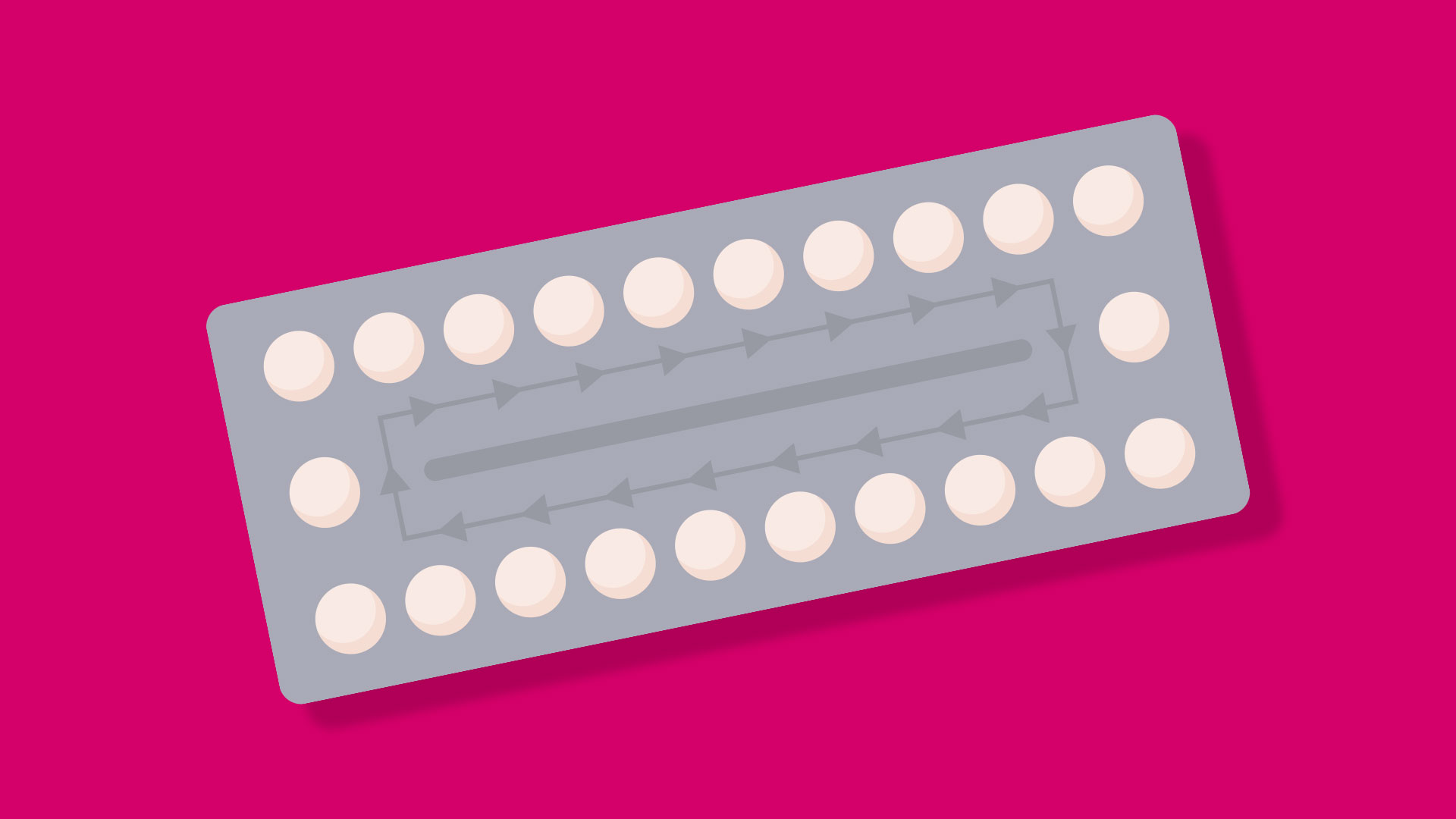Birth control pills are one of the most popular forms of contraception worldwide, but many women wonder whether taking them at night affects their effectiveness. The timing of your birth control intake can influence how well it works, so understanding this aspect is crucial for optimal results. Whether you're new to birth control or have been using it for years, knowing the best time to take your pill ensures maximum protection.
While many people assume that birth control pills must be taken in the morning, the truth is more nuanced. Factors like individual schedules, consistency, and the type of pill you're using play a significant role in determining the ideal timing. This article will explore whether taking birth control at night is effective and provide actionable advice to help you make informed decisions about your reproductive health.
Our goal is to provide a detailed, evidence-based guide that addresses common concerns and offers practical tips for managing birth control effectively. By the end of this article, you'll have a clearer understanding of how to integrate birth control into your daily routine while maintaining its efficacy.
Read also:Exploring The Legacy Of Wharton School Of Business Notable Alumni A Journey Of Excellence
Table of Contents
- The Importance of Timing in Birth Control
- Can You Take Birth Control at Night?
- Different Types of Birth Control Pills and Timing
- Why Consistency Matters
- Benefits of Taking Birth Control at Night
- Potential Risks of Nighttime Birth Control
- Tips for Taking Birth Control at Night
- Common Questions About Birth Control Timing
- Expert Recommendations and Studies
- Conclusion: Making the Right Choice for Your Health
The Importance of Timing in Birth Control
When it comes to birth control pills, timing is everything. The effectiveness of these medications depends on how consistently you take them and at what time of day. While most healthcare providers recommend taking birth control pills at the same time every day, the specific timing (morning or night) may vary depending on individual preferences and routines.
Research shows that hormonal birth control pills work by maintaining a steady level of hormones in your body. Missing doses or taking pills inconsistently can disrupt this balance, potentially leading to reduced effectiveness and increased risk of unintended pregnancies. Therefore, understanding the role of timing in birth control is essential for achieving optimal results.
Why Timing Affects Effectiveness
Birth control pills contain synthetic hormones such as estrogen and progestin, which mimic natural hormones in the body. These hormones prevent ovulation, thicken cervical mucus, and alter the uterine lining to prevent pregnancy. For these mechanisms to work effectively, the pills must be taken regularly and at consistent intervals.
- Combination pills require daily intake to maintain hormone levels.
- Progestin-only pills (mini-pills) are more sensitive to timing and must be taken within the same three-hour window each day.
- Inconsistent timing can lead to breakthrough bleeding or reduced contraceptive effectiveness.
Can You Take Birth Control at Night?
Yes, you can take birth control pills at night if it fits your daily routine and lifestyle. Many women find nighttime more convenient because it aligns with their bedtime schedules. However, the key to successful birth control lies in consistency rather than the specific time of day.
Whether you choose morning or night, the most important factor is sticking to the same time every day. This ensures that hormone levels remain stable and prevents fluctuations that could compromise the pill's effectiveness. If you're someone who struggles to remember taking pills in the morning due to a busy schedule, nighttime might be a better option for you.
Factors to Consider When Taking Birth Control at Night
Before deciding to take birth control at night, consider the following factors:
Read also:Movierulzcom Your Ultimate Guide To Streaming Movies Online Safely And Legally
- Your daily routine: Do you have a consistent bedtime schedule?
- Pill type: Are you using combination pills or progestin-only pills?
- Potential side effects: Some women experience nausea or other side effects when taking pills at night.
Discussing these factors with your healthcare provider can help you determine whether nighttime is the right choice for you.
Different Types of Birth Control Pills and Timing
Not all birth control pills are created equal. The timing requirements for combination pills and progestin-only pills differ significantly, so understanding the differences is crucial for optimal effectiveness.
Combination pills, which contain both estrogen and progestin, are generally more forgiving in terms of timing. As long as you take them within the same 12-hour window each day, their effectiveness remains high. On the other hand, progestin-only pills require stricter adherence, as missing the three-hour window can significantly reduce their efficacy.
Comparison of Pill Types and Timing Requirements
| Pill Type | Active Hormones | Timing Flexibility | Potential Side Effects |
|---|---|---|---|
| Combination Pills | Estrogen and Progestin | Flexible (up to 12-hour window) | Nausea, headaches, mood changes |
| Progestin-Only Pills | Progestin | Strict (3-hour window) | Irregular periods, weight gain, breast tenderness |
Understanding the specific requirements of your pill type can help you choose the best timing for your needs.
Why Consistency Matters
Consistency is the cornerstone of effective birth control. Regardless of whether you take your pills in the morning or at night, sticking to the same time every day ensures that hormone levels remain stable and reduces the risk of unintended pregnancies.
Studies have shown that women who take their birth control pills consistently are less likely to experience breakthrough bleeding or side effects. Additionally, consistent use improves overall satisfaction with the method and increases the likelihood of continued adherence.
Tips for Staying Consistent
- Set a daily alarm or reminder on your phone to take your pill at the same time.
- Pair pill-taking with a daily routine, such as brushing your teeth or having breakfast.
- Use a pill organizer to keep track of your doses and avoid missing pills.
Benefits of Taking Birth Control at Night
Taking birth control pills at night offers several advantages for some women. If your lifestyle or schedule makes it difficult to remember taking pills in the morning, nighttime might be a more practical option. Additionally, some women find that taking pills before bed reduces the likelihood of experiencing nausea or dizziness, which can occur with certain formulations.
Another benefit of nighttime dosing is that it aligns with the natural hormone fluctuations in your body. Since hormones are typically released during sleep, taking pills at night can help maintain a more stable hormonal balance throughout the day.
Who Might Benefit from Nighttime Birth Control?
Certain groups of women may find nighttime dosing particularly beneficial:
- Those with busy mornings who struggle to remember taking pills.
- Women who experience nausea or other side effects after taking pills.
- Individuals with irregular schedules or shift work who prefer a consistent nighttime routine.
Potential Risks of Nighttime Birth Control
While taking birth control at night can be convenient, it's important to consider potential risks or drawbacks. Some women may experience difficulty sleeping or other side effects when taking pills before bed. Additionally, if you frequently wake up during the night or have an inconsistent sleep schedule, nighttime dosing might not be the best choice for you.
Research indicates that the timing of birth control pills can influence side effects such as mood changes, headaches, or breast tenderness. If you notice any adverse effects after switching to nighttime dosing, consult your healthcare provider for alternative options.
How to Minimize Risks
To minimize potential risks associated with nighttime birth control, consider the following strategies:
- Monitor your body's response to nighttime dosing and adjust if necessary.
- Communicate openly with your healthcare provider about any side effects or concerns.
- Experiment with different timing options to find what works best for your lifestyle and health needs.
Tips for Taking Birth Control at Night
If you decide to take birth control pills at night, here are some practical tips to help you stay consistent and maximize effectiveness:
- Choose a specific time each night, such as right before bed, and stick to it.
- Keep your pill pack near your bed or in a visible location to remind you to take your dose.
- Use a smartphone app or digital assistant to set reminders for pill-taking.
Remember that consistency is key, so find a routine that works for you and stick to it as closely as possible.
Common Questions About Birth Control Timing
Here are some frequently asked questions about taking birth control pills at night:
Q: Does taking birth control at night affect its effectiveness?
No, as long as you take your pills at the same time every day, the timing (morning or night) does not affect its effectiveness. Consistency is the most important factor.
Q: Can I switch from morning to night dosing?
Yes, you can switch your dosing time, but it's important to do so consistently. If you miss a pill during the transition, follow the instructions provided with your pill pack or consult your healthcare provider.
Q: What should I do if I miss a pill at night?
If you miss a pill, take it as soon as you remember. If it's been more than 12 hours (or 3 hours for progestin-only pills), use backup contraception (such as condoms) for the next seven days to ensure protection.
Expert Recommendations and Studies
Healthcare professionals and researchers emphasize the importance of consistency in birth control pill timing. A study published in the Journal of Obstetrics and Gynecology found that women who took their pills consistently, regardless of the time of day, experienced fewer side effects and higher satisfaction rates.
Experts also recommend discussing your birth control options with a healthcare provider to determine the best timing for your individual needs. Factors such as age, health history, and lifestyle all play a role in determining the optimal dosing schedule.
Conclusion: Making the Right Choice for Your Health
Taking birth control pills at night is a viable option for many women, especially those with busy mornings or inconsistent schedules. However, the most important factor in ensuring effectiveness is consistency. Whether you choose morning or night, sticking to the same time every day is crucial for maintaining stable hormone levels and preventing unintended pregnancies.
We encourage you to share your thoughts and experiences in the comments section below. If you found this article helpful, consider sharing it with friends or family who may benefit from the information. For more insights into reproductive health, explore our other articles on contraception and women's health.


.jpg)